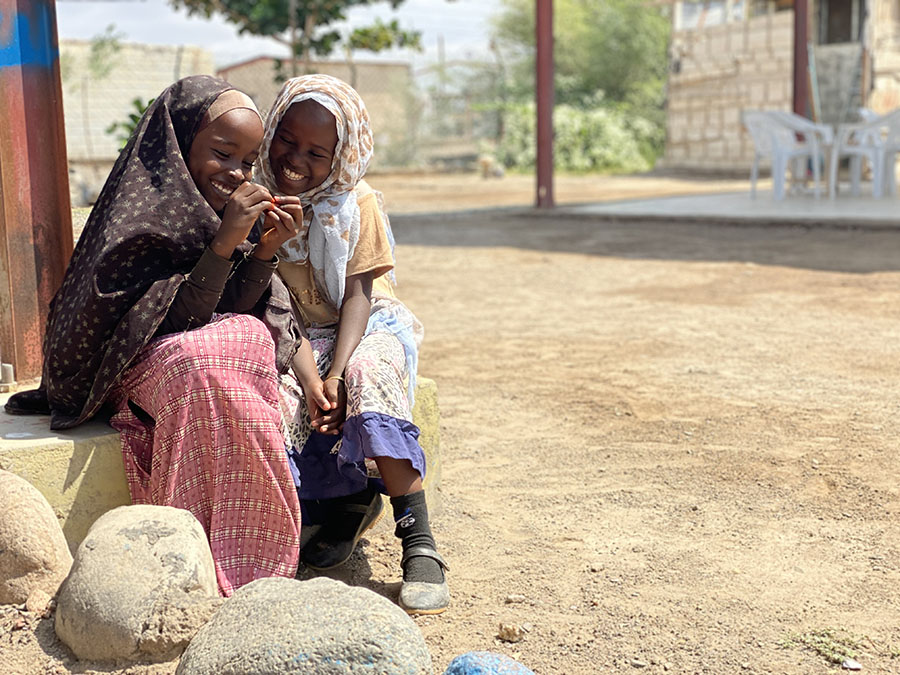Fatoon, a 37-year-old Somali refugee, arrived in Yemen in August 2019. In Somalia, her work in a shop in the market earned her enough to provide for her young children. But when the owners of the shop where she worked suddenly closed the business, Fatoon lost her job and quickly ran out of savings. Eventually she lost her rented apartment and with little choice, she decided to travel to Yemen.
"It broke my heart not to be able to provide for my kids anymore. I thought that in Yemen, I could earn enough money to take care of them."
Read more
Fatoon’s relatives contributed to pay for her boat crossing. Everyone knew the crossing was risky, and her problems began at the port from which the boat was leaving. Forced to throw away her belongings before boarding, Fatoon just managed to hold on to a bottle of water and dates to last the journey.
"They let me on with just the clothes I was wearing and the dress I had tied around my waist" But the crossing to Shabwah, in Yemen, was more dangerous than she had imagined. Once onboard the packed boat, the crewmen beat her and the other passengers. She suffered severe injuries.
"I was in pain. I would repeat to myself, be strong. We’ll soon reach, it will all be over". The crossing lasted 24 hours.
Once the boat reached Yemen, the crew asked the passengers for more money. Those who couldn’t pay, including Fatoon, were not allowed to leave and their families in Somalia blackmailed to pay additional money. During two weeks of captivity, Fatoon became increasingly traumatized, and her wounds became infected.
Once she was released, Fatoon joined other refugees in making their way to Mukalla, the capital of Hadhramaut governorate. There she met Fatma, a woman from her village in Somalia, who helped her to the offices of INTERSOS, a UNHCR partner. Weak and in pain, Fatoon was assigned a case worker, and was given medical care and emergency cash assistance to cover the costs of treatment.
While receiving treatment, doctors discovered that Fatoon had breast cancer. She needed urgent surgery to remove a tumor, and chemotherapy to stop the cancer from spreading. Fatoon’s friend Fatma mobilized the community, going door to door and asking for help to pay for the treatment. "The whole neighborhood pitched in, refugees and Yemeni, everyone put in what they could”, Fatma explained.
UNHCR, through INTERSOS, provided Fatoon with additional cash assistance to cover her rent and basic needs such as food, water and clothing. She also received psychosocial support to help her overcome the trauma she had undergone since leaving home.
In February, Fatoon went for a third visit to the doctor. The results of the exams/scans were encouraging, and the disease is regressing. "I feared that I would not see my children again, now I am hopeful."
In Yemen, UNHCR uses cash-based interventions to provide protection, assistance and lifesaving services to the most vulnerable refugees like Fatoon, survivors of sexual and gender-based violence, foster parents of unaccompanied and other at-risk children, or families lacking access to basic necessities. Refugees receive a monthly payment of between US$80 and US$200 depending on their needs and level of vulnerability.
In 2019, thanks to generous contribution of over US $5.3 million from donors including the King Salman Humanitarian Aid and Relief Centre (KSrelief) to the UNHCR Yemen cash programme for refugees, UNHCR assisted almost 24,500 people, helping them meet their basic needs and supporting them in meeting their individual vulnerabilities.






